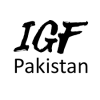Asia Pacific Regional Group
The Internet Governance Forum Afghanistan (IGFA) was established in 2017. It aims at addressing issues of relevance for the respective community of Afghanistan. It brings diverse stakeholders under a single platform to discuss challenges and propose solutions.
Bangladesh national IGF started its work in 2006 and received official recognition in 2016. It provides a domestic independent forum in Bangladesh aiming to engage different stakeholder groups into the discussion on Internet governance. It helps to create partnerships, coalitions and dialogues that demonstrate best practices and help move policy forward.
National IGF of China was recognized in 2019. Its core objective is to foster a bottom-up, participatory, open, transparent, and inclusive platform where all stakeholders can exercise their respective roles in enhancing Internet security, accelerating industry development, advancing good Internet governance and promoting digital economy.
The national IGF of India was established in 2021. Its aim is to facilitate discussions between all stakeholders as equals on public policy issues related to the Internet.
Indonesia's national IGF was established in 2012. It aims to achieve those principles set out in the Indonesia IGF Declaration.
Japan national IGF was established in 2016. Its main goal is to create a unique place for all stakeholders of this respective community to discuss the issues related to Internet governance.
The national IGF of Kazakhstan was established in 2023. Its main goal is to facilitate an open, inclusive and bottom-up platform for all stakeholders to discuss the issues related to Internet governance and cooperate.
The national IGF of Kyrgyzstan was established in 2023. Its main goal is to facilitate an open and inclusive platform for all stakeholders to discuss digital public policy.
National IGF of Lebanon was established in 2017. Its core objective is to develop a multistakeholder process for their respective community to address matters pertaining to the Internet governance.
The national IGF of the Maldives was established in 2023 year. Its main goal is to create an inclusive open space for all stakeholders to discuss matters related to public digital policy in the country and beyond.
National IGF of Nepal was established in 2017. Nepal IGF Declaration indicates that the main objective of this IGF is to promote and encourage open and inclusive dialogue and exchange of ideas among all stakeholders involved with Internet governance related issues. It focuses on the organization of the annual meeting, as well as on the capacity building, raising awareness, creating new opportunities for this respective community and bringing new perspectives to it, all in regards to the Internet governance.
The national IGF of Pakistan was established in 2017 year. It aims for creating a platform for discussion, dialogue, exchange and collaboration on Internet Governance issues.
This national IGF was established in 2012, and recognized in 2017. It is an annual forum for multistakeholder policy dialogue on Internet-related matters.
Sri Lanka national IGF was recognised in 2015 year. Its main objective is to reinforce active citizenship in people and participates in the development of intercultural and intergenerational dialogues.
Vanuatu IGF was established in 2019. It aims at establishing a multistakeholder platform for discussing the Internet governance related matters.





